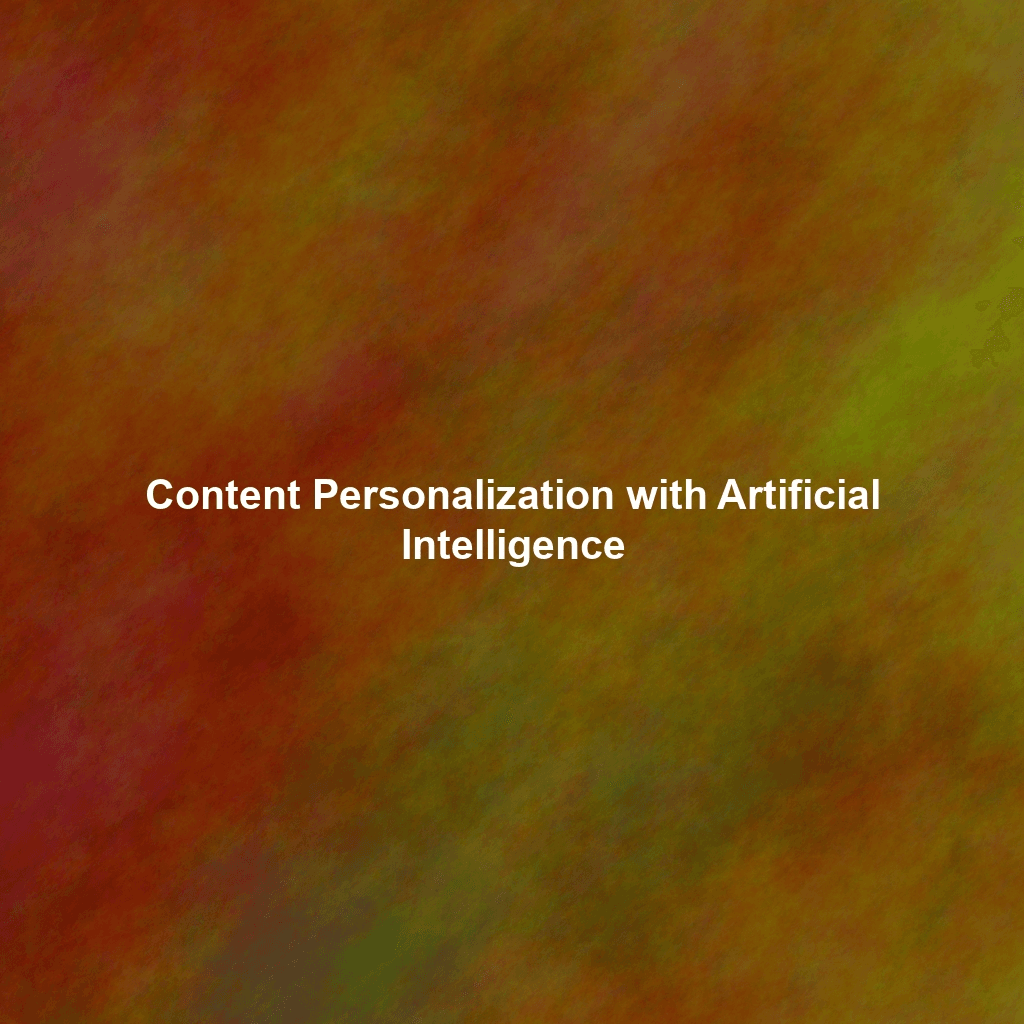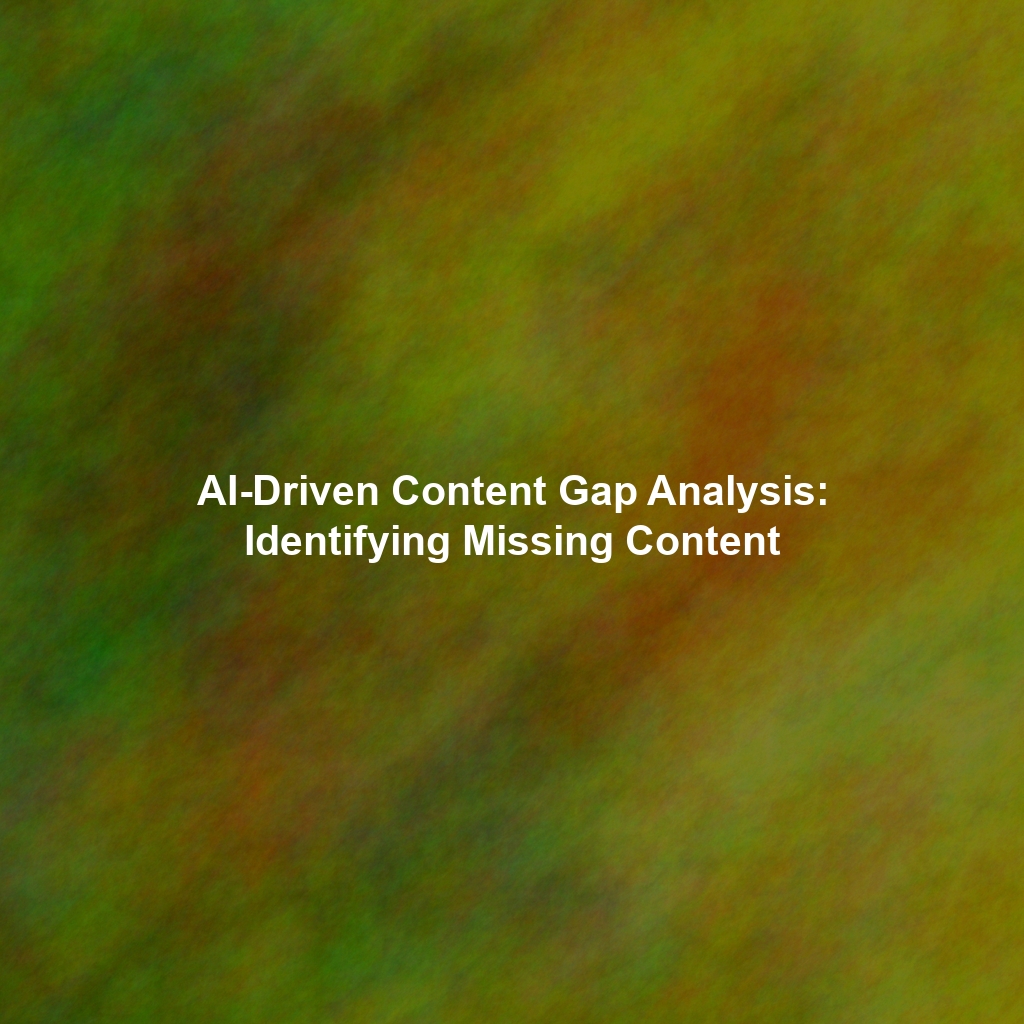Imagine a world where every piece of content you consume feels tailor-made for you. Where articles, videos, and even social media posts anticipate your interests and address your specific needs. This isn’t science fiction; it’s the reality being shaped by content personalization with artificial intelligence (AI). In today’s digital landscape, generic, one-size-fits-all content simply doesn’t cut it. Audiences are bombarded with information, and they’re increasingly selective about what captures their attention. Content personalization, powered by AI, offers a powerful solution to break through the noise and deliver experiences that resonate on a deeper level.
What is AI-Powered Content Personalization?
At its core, content personalization is the practice of tailoring content to individual users based on their unique characteristics, behaviors, and preferences. AI takes this concept to the next level by automating and scaling the personalization process. Instead of relying on manual segmentation and assumptions, AI algorithms analyze vast amounts of data to identify patterns and predict individual needs.
Here’s a breakdown of the key elements:
- Data Collection: AI algorithms gather data from various sources, including website activity, purchase history, social media interactions, email engagement, and demographic information.
- Data Analysis: Machine learning models analyze this data to identify patterns, segment users, and predict their preferences.
- Content Delivery: Based on the analysis, AI delivers personalized content experiences, such as tailored product recommendations, customized website layouts, and targeted email campaigns.
- Optimization: AI continuously learns and optimizes the personalization process based on user feedback and performance metrics.
Think of it like this: instead of sending the same email newsletter to your entire subscriber list, AI can analyze each subscriber’s past behavior and deliver a version of the newsletter that highlights the products or articles they’re most likely to be interested in.
The Compelling Benefits of Content Personalization with AI
Investing in AI-powered content personalization offers a multitude of benefits that can significantly impact your marketing ROI:
Increased Engagement
Personalized content is inherently more engaging because it resonates with the individual’s specific needs and interests. When users feel understood and valued, they’re more likely to spend time with your content, click on links, and explore your website.
Improved Conversion Rates
By delivering the right content to the right person at the right time, AI personalization can significantly boost conversion rates. Whether it’s driving sales, generating leads, or encouraging sign-ups, personalized experiences are more likely to motivate users to take action.
Enhanced Customer Experience
Personalization demonstrates that you understand and care about your audience. This creates a more positive and memorable customer experience, fostering loyalty and advocacy.
Higher Customer Lifetime Value
Happy and engaged customers are more likely to stick around and make repeat purchases. By nurturing relationships with personalized content, you can increase customer lifetime value and generate long-term revenue.
Better ROI on Marketing Investments
Ultimately, AI-powered content personalization leads to a better return on your marketing investments. By targeting your efforts more effectively and delivering more relevant experiences, you can maximize the impact of your campaigns and achieve your business goals more efficiently.
AI Technologies Driving Content Personalization
Several AI technologies are essential for powering effective content personalization strategies:
Machine Learning
Machine learning is the backbone of AI personalization. Algorithms analyze vast amounts of data to identify patterns, predict user behavior, and optimize content delivery. Specific machine learning techniques like collaborative filtering, content-based filtering, and deep learning are commonly used.
Natural Language Processing (NLP)
NLP enables AI to understand and process human language. This is crucial for analyzing text-based content, identifying user intent, and tailoring content to specific language preferences. Sentiment analysis, a branch of NLP, can also be used to understand the emotional tone of user feedback and personalize content accordingly.
Predictive Analytics
Predictive analytics uses historical data to forecast future outcomes. In the context of content personalization, predictive models can be used to anticipate user needs, recommend relevant content, and personalize the user journey.
Recommendation Engines
Recommendation engines use algorithms to suggest relevant content to users based on their past behavior, preferences, and the behavior of similar users. These engines are commonly used on e-commerce websites, streaming platforms, and news websites to personalize product recommendations and content feeds.
Implementing an Effective AI Content Personalization Strategy
While the potential of AI content personalization is undeniable, successful implementation requires a strategic approach. Here are some key steps to consider:
1. Define Your Goals and Objectives
What do you hope to achieve with content personalization? Are you looking to increase website engagement, generate more leads, or improve customer retention? Clearly defining your goals will help you focus your efforts and measure your success.
2. Identify Your Target Audience Segments
While AI can personalize content at the individual level, it’s helpful to start by identifying key audience segments based on demographics, interests, behaviors, and purchase history. This will provide a framework for your personalization efforts.
3. Collect and Analyze Data
Data is the fuel that powers AI personalization. Ensure you’re collecting the right data from various sources and using appropriate tools to analyze it effectively. Consider using a Customer Data Platform (CDP) to centralize and manage your customer data.
4. Choose the Right AI Tools and Technologies
Select the AI tools and technologies that best fit your needs and budget. There are a wide range of options available, from off-the-shelf solutions to custom-built AI models. Consider factors such as scalability, ease of use, and integration with your existing marketing stack.
5. Create Personalized Content Experiences
Develop personalized content experiences that cater to the specific needs and interests of your target audience segments. This could involve tailoring website layouts, personalizing email campaigns, creating dynamic landing pages, or recommending relevant products and articles.
6. Test and Optimize
Continuously test and optimize your personalization efforts based on user feedback and performance metrics. Use A/B testing to compare different personalization strategies and identify what works best for your audience. AI algorithms can also automatically optimize personalization parameters based on real-time data.
7. Prioritize Privacy and Transparency
Be transparent with your audience about how you’re collecting and using their data. Provide users with control over their personalization preferences and ensure you comply with all relevant privacy regulations, such as GDPR and CCPA.
Real-World Examples of AI Content Personalization
E-commerce: Personalized Product Recommendations
Online retailers use AI-powered recommendation engines to suggest products that customers are likely to be interested in based on their browsing history, purchase history, and the behavior of similar customers. Amazon’s “Customers who bought this item also bought” feature is a classic example.
Media: Tailored News Feeds
News websites and social media platforms use AI to personalize news feeds based on users’ interests, reading habits, and social connections. This ensures that users see the most relevant and engaging content first.
Marketing Automation: Targeted Email Campaigns
Marketing automation platforms use AI to personalize email campaigns based on subscriber behavior, demographic information, and purchase history. This allows marketers to send more relevant and effective emails, leading to higher open rates and click-through rates.
Website Personalization: Dynamic Content and Layouts
Websites can use AI to personalize the content and layout of different pages based on user demographics, browsing history, and device type. This can involve displaying different banners, highlighting different products, or adjusting the overall design of the page.
Challenges and Considerations When Implementing AI Personalization
While the benefits of AI content personalization are significant, several challenges and considerations need to be addressed:
Data Privacy and Security
Protecting user data is paramount. Implement robust security measures to prevent data breaches and ensure compliance with privacy regulations.
Algorithm Bias
AI algorithms can inherit biases from the data they’re trained on. This can lead to unfair or discriminatory personalization outcomes. It’s crucial to monitor your algorithms for bias and take steps to mitigate it.
Over-Personalization
Too much personalization can feel intrusive and creepy. Find the right balance between relevance and privacy.
Implementation Costs
Implementing AI-powered personalization can be expensive, requiring investments in software, hardware, and expertise. Carefully consider the costs and benefits before embarking on a personalization project.
Lack of Skilled Professionals
Implementing and managing AI personalization requires specialized skills in data science, machine learning, and content marketing. Ensure you have access to the necessary talent or consider partnering with a qualified vendor.
The Future is Personalized: Embracing AI in Content Marketing
Content personalization with artificial intelligence is no longer a futuristic concept; it’s a present-day necessity for businesses looking to thrive in the competitive digital landscape. By embracing AI, marketers can create more engaging, relevant, and effective content experiences that drive results. While challenges and considerations exist, the potential benefits of AI personalization far outweigh the risks.
As AI technology continues to evolve, we can expect to see even more sophisticated and personalized content experiences emerge. The future of content marketing is undoubtedly personalized, and those who embrace this trend will be best positioned to succeed.
 Skip to content
Skip to content

